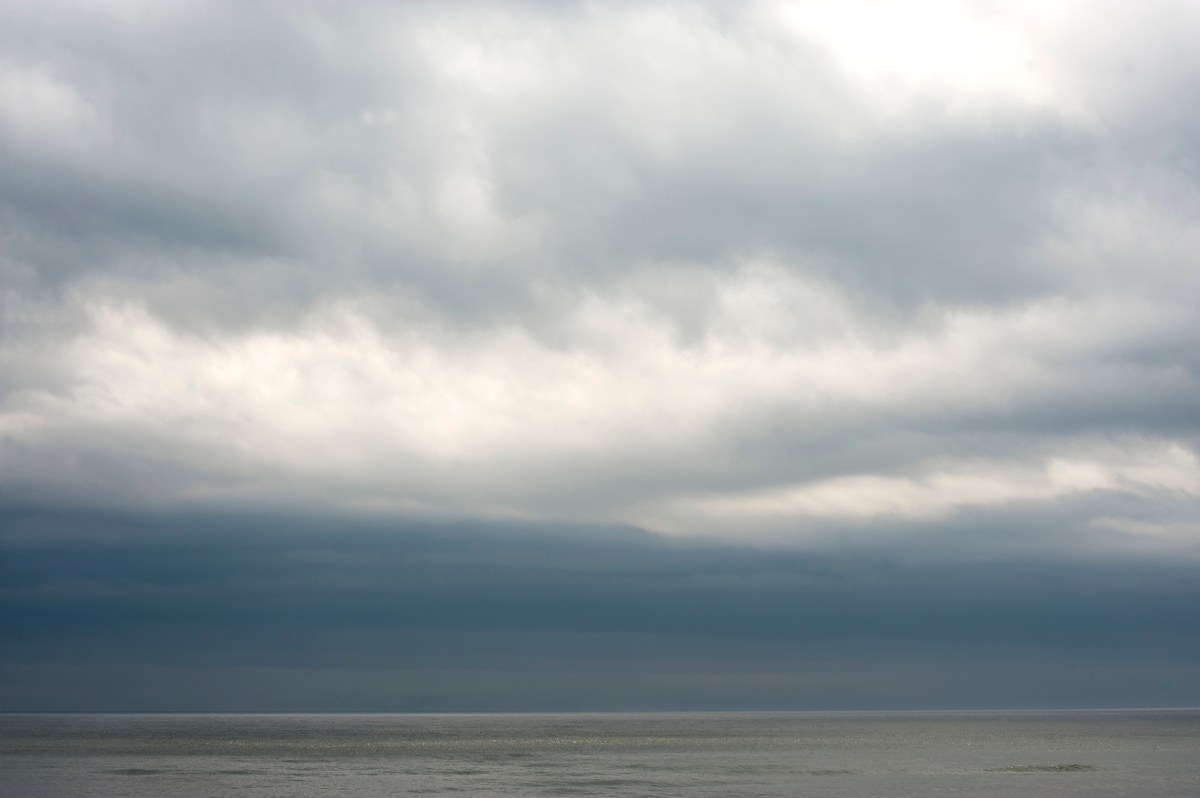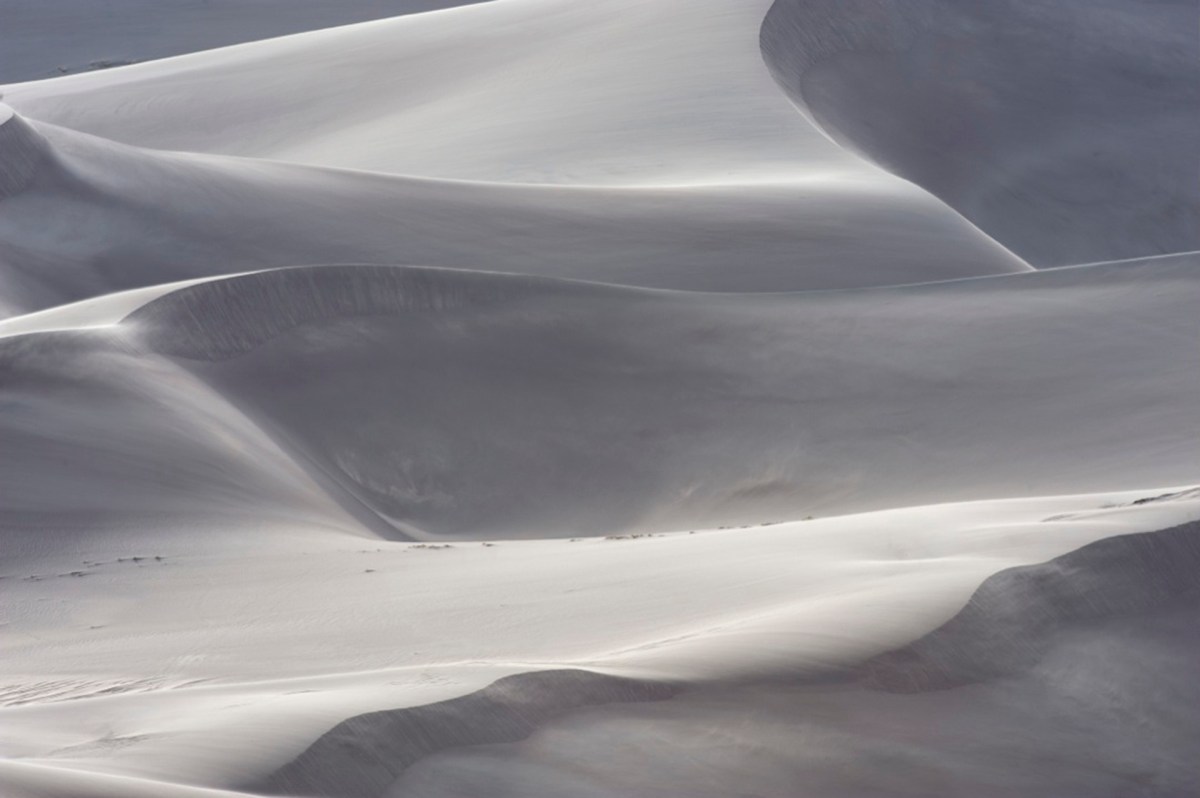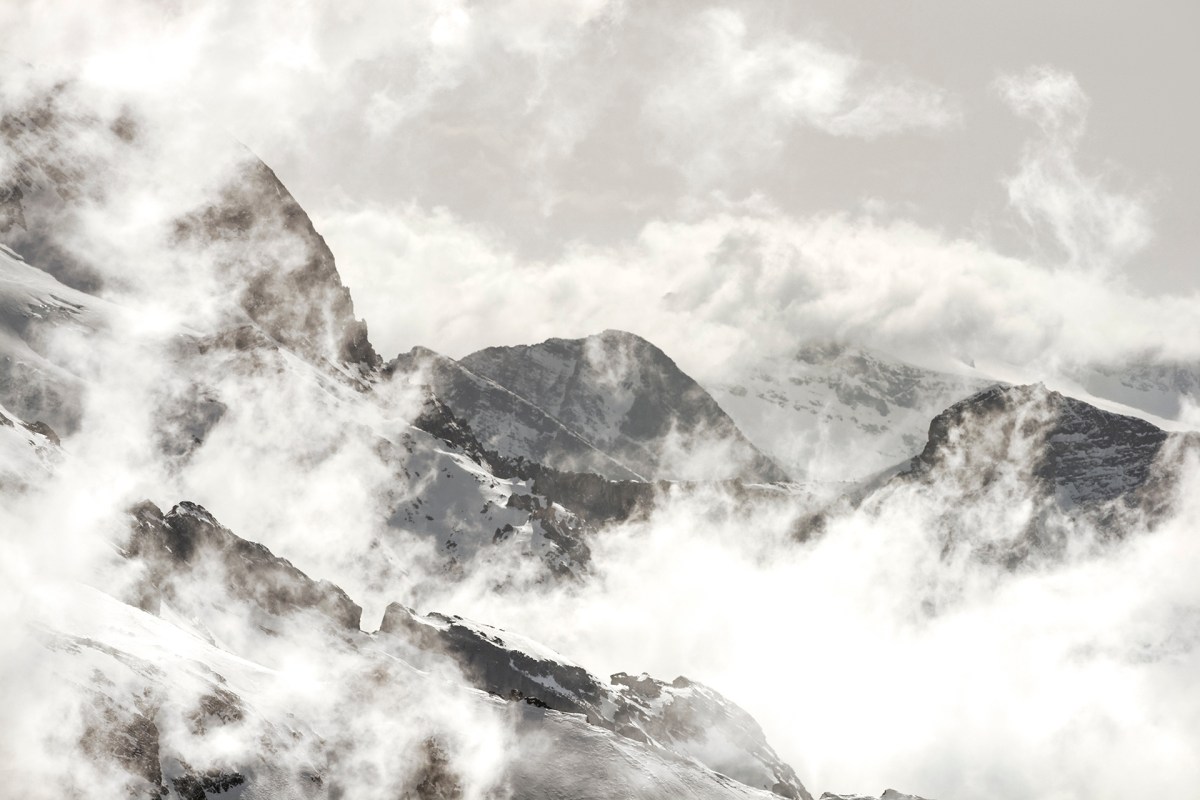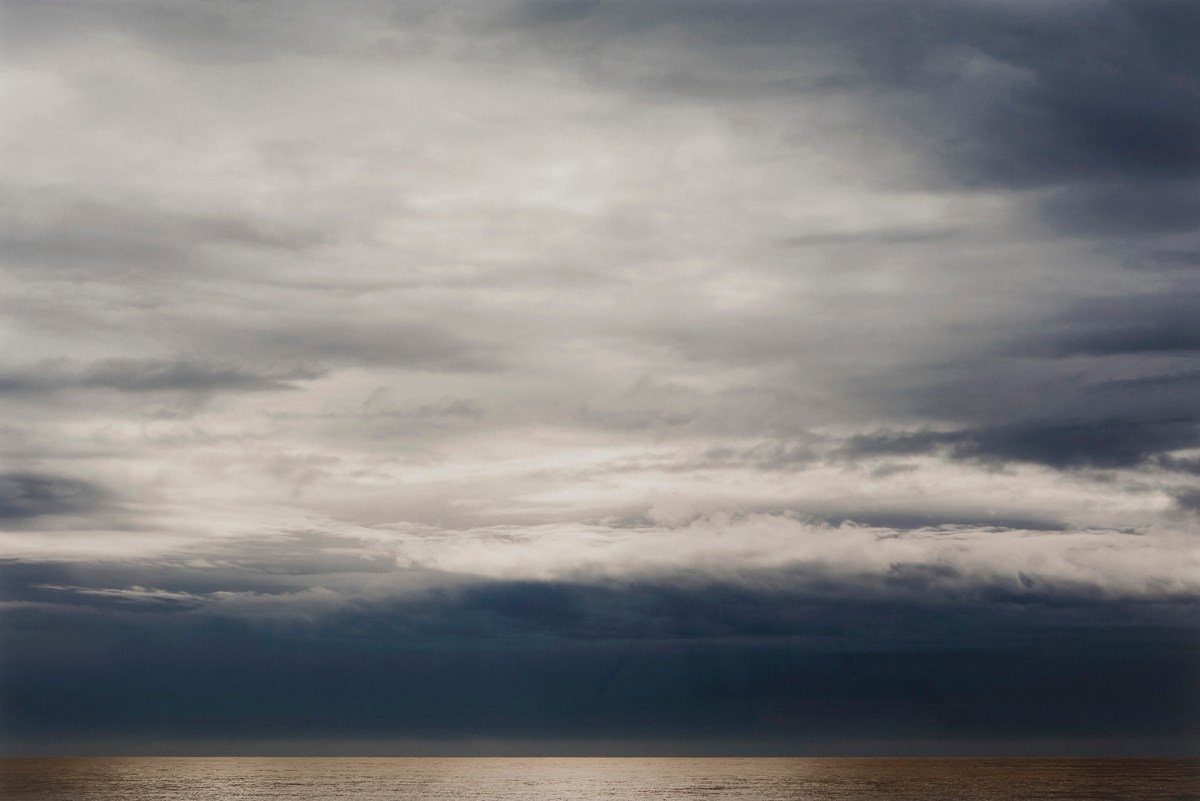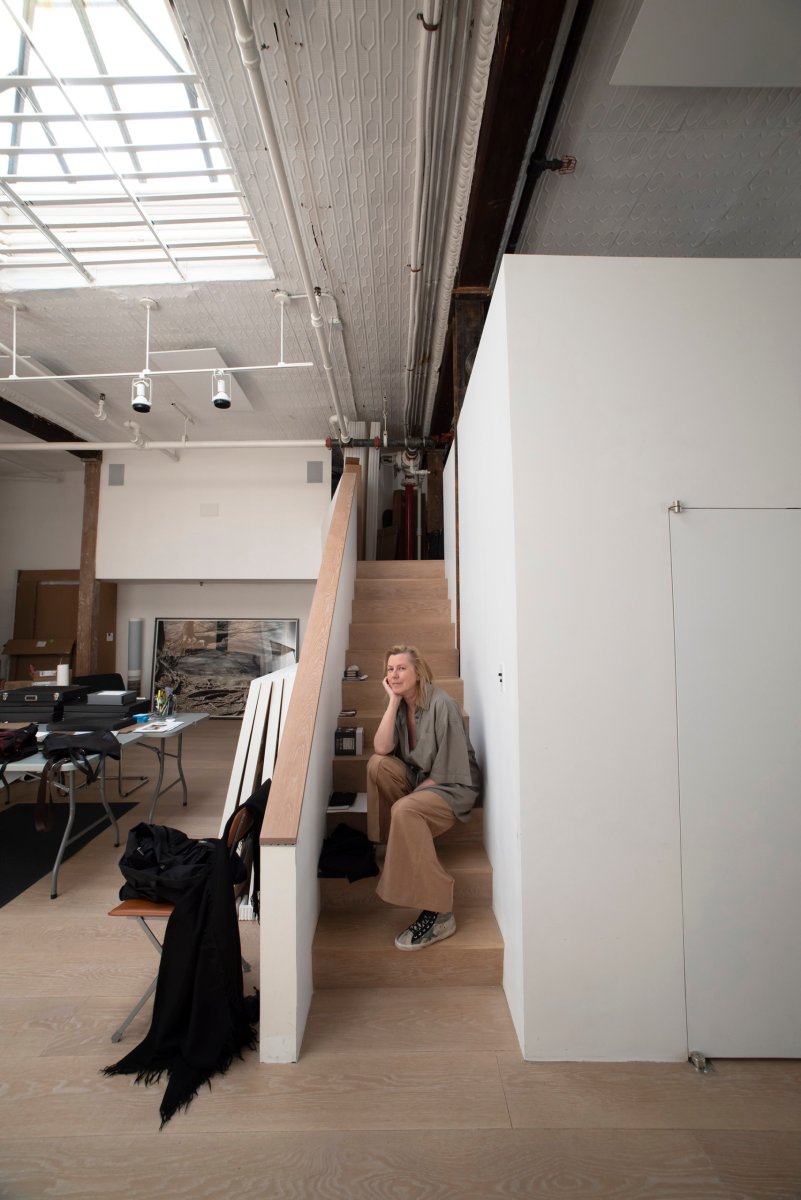The Space Between Memory And Expectation
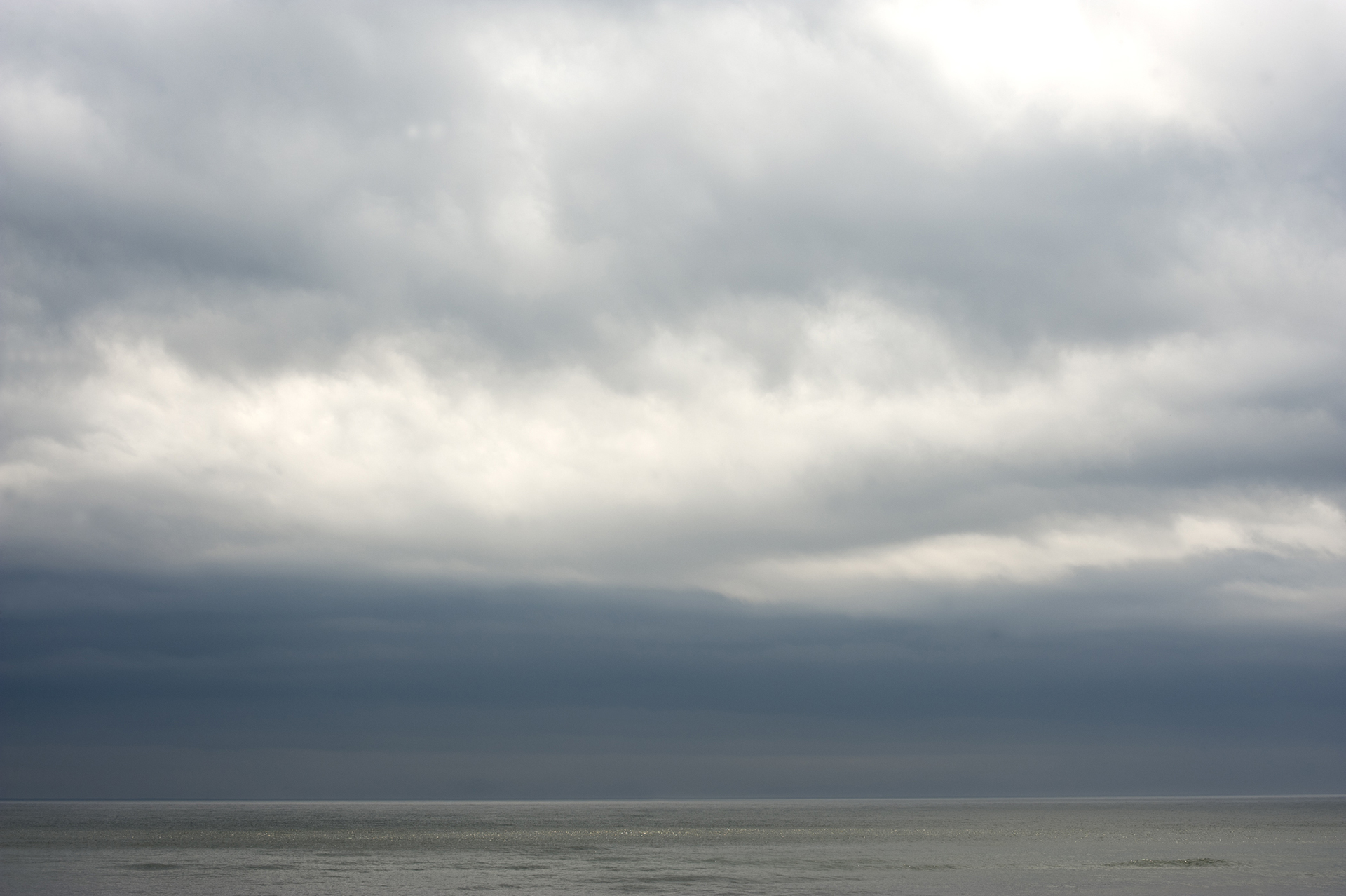
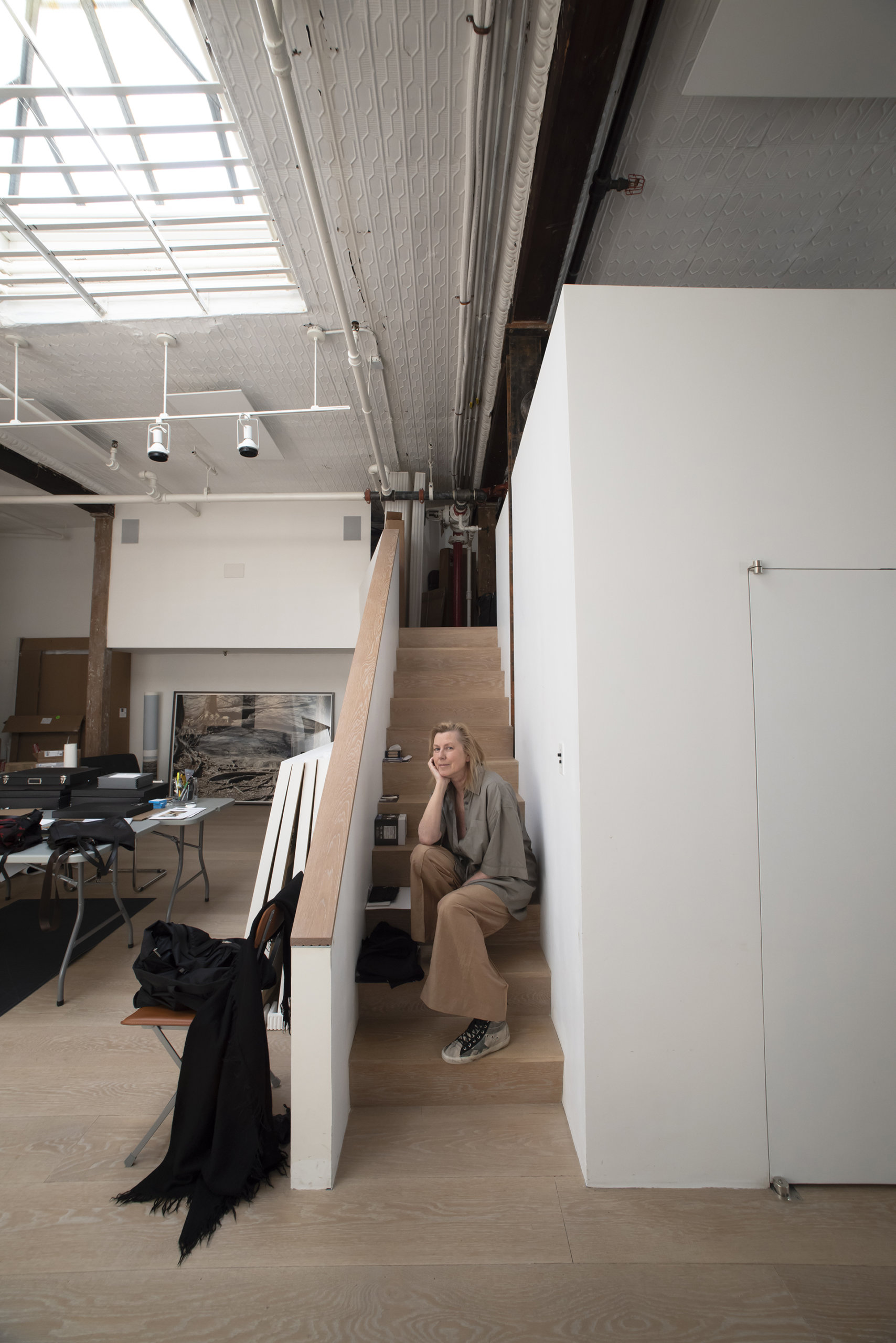
German born Renate Aller received her first box camera, an Agfa Click, at only 12 years old. In her newest book, “Mountain Interval,” is an image of the young girl in the Austrian Alps in 1972, a picture her father took with that very same camera.
Calling herself “a visual artist using the camera as a tool,” Aller initially entered art school in London as a painter, before transitioning to sculpture and multi-media performance work. In the winter of 1999, Aller and her husband, Hugh, moved from London to New York, to a home on the south shore of Long Island. The two have become integrated into the artistic community of the East End.
As part of Parrish Perspectives, on view this Sunday, March 24, through July 18 at Parrish Art Museum in Water Mill, will be “Renate Aller: The Space Between Memory and Expectation,” an immersive installation of large scale, mystical images from the artist’s series “Ocean | Desert” and “Mountain Interval.”
What were some of your first photographs of Long Island?
The Oceanscape series happened and still does happen, in one place — our home on Long Island. I pointed my camera all times of the day and through various seasons toward the ocean from exactly the same location, and have continued revisiting the same view to this day. Each seascape photographed at a different point of time.
How did you become involved with Parrish?
In 2011, Ross Bleckner chose my work to exhibit alongside his paintings in the Parrish Art Museum’s juried exhibition “Artists Choose Artists.” This opened conversations between other artists, curators, and collectors as well as museum visitors and reinforced my sense of belonging and being part of this special community.
How has your upbringing influenced your work?
During my childhood and early teenage years in Germany, every vacation as well as available weekends, my father led the family up mountain ranges, through dense forests or long hikes along river banks or other shore lines. It seemed to me as if the sole purpose of these outings was to teach my sister and me to find our bearings, so as never to get lost or disoriented.
My grandfather from my father’s side was a “decorateur” (what we would call today interior designer) while my mother’s father was an architect and city planner. Therefore, since entering art school in London in the early ’90s, I have focused on the relationship of human beings to their surroundings.
Describe the difference between seeing your work in galleries versus in your published books.
I am more comfortable in a public space setting that allows me to create an environment that reacts to the architectural space as well as to our current political awareness — the socio-political space we find ourselves in.
I am very lucky that Terrie Sultan, who also wrote the essay in my recent book, “Mountain Interval,” understands this aspect of my work and encouraged me to create the installation at the museum accordingly. It’s the result of many years of conversations and studio visits by Terrie as well as Parrish chief curator Alicia Longwell, whose reflections have been a big part of the way the project came to life.
People have asked me if I was “done” with a series because it has emerged and presented itself in book form. As my projects are ongoing or one melds into the next, the book might come along as a milestone marking a particular stage in the development. The viewer experiences artwork in a serial form differently in a book than in a gallery with framed works or on a website. The monograph does not become a catalogue of my work but has its own life and language. I do hope however that it tells the same story as my installations.
You’ve photographed contrasting landscapes in this exhibit.
The ocean and the desert carry each other’s memories. The Great Sand Dunes (also shown in this exhibition), are leaning against the Rocky Mountains in Colorado. Returning to this location, I decided to focus on the mountains instead of the sand dunes — the start of the “Mountain Interval” series. From then onward, I created a long list of mountain ranges and peaks I wanted to photograph, each location with a specific time slot.
Some mountains, hugged by their glaciers and held together by perma-frost, strong, majestic towering like cathedrals toward the sky, others like the image of the Dolomites in this show, inviting the viewer to enter the image with its reassuring horizon line. The framed images are hung just far enough from each other so that the eye of the viewer is encouraged to make this connection.
The viewer is asked to make the connection of multiple experiences as we would in the linguistic world where the placement of multiple words create the meaning depending on their placement and relationship to each other. Parallel realities from different locations open up conversations between the different political landscapes in which we live.
Do you travel alone or with your husband?
My husband Hugh travelled with me to all the six continents and the many mountain ranges, drove with me for hours and days on end, or helped to carry the equipment up steep routes. Patience, love, and hot mate tea being our companions. We often talk about the various journeys and each time we realize that every location had a special memory that will stay with us forever.
What are some of your other hobbies that tie into nature?
Inspirational endeavors that “feed” my creative brain include books, which translate themselves into visuals, as well as music, theater, performances of various kinds, walks in nature or through a city, listening to the sound of urban noises or the rhythm of waves, the crackling and thundering sounds of a mountain, my husband’s voice, or the silence of the night.
What are ‘the spaces between’ our everyday lives?
The interval, the space in between, is and is about the moments during which apparently nothing happens, but without which no change could happen. “The Space between Memory and Expectation” is a visual way to describe this state of stillness and transition. The same applies to all the moments in our everyday lives.
Learn more by visiting www.renatealler.com or www.parrishart.org.
nicole@indyeastend.com
